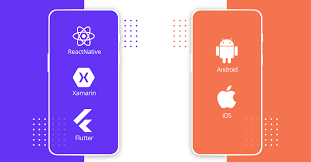


The users can access to evey API and tool provided by the platform when users are working on. This is because Native App no limits on how programmers could work with the new app.
A native app is easier to be published and usually ranked higher on the platform's app store. The reason is because native app can deliver better performance and speed.
The native app can buit dor the native environment and also tend to be more scalable, thanks to the flwxibility in resources management and the array of tools available.
The high performance will be produce at the direct interaction between the code and the underlying resources. In addition, native apps also have a better user experience that is synonymous with the platform.
The higher cost will be need when building native apps. The reason is because must deploy two teams working on different platform if the app want to launch for both iOS and Android.
The developer cannot be duplicated for another when they work done for a platform. So that, they need a separate team to work on the other app version.
One team of developers is needed to create a cross-platform app so that instead of having two teams of developers. When the number of developers is less, the development cost will less.
Only a single cycle of development is needed to create an app that runs on multiple platforms.
Only one code base is created when the aoo is created with a single cross-platform development tool.
An additional abstraction layer and rendering process is needed to make the cross-paltform app. So that, cross-platform app will slower than its native counterpart.
Developers may have difficulty accessing smartphone functionalities such as microphone, camera and geolocation in ways possible for a native app.
The cross-platform app can't deliver the same user experience that accustomed to the platform.
Native and cross-platform development have different pros and cons. Ultimately, the choice of going with either depends on project requirements and the skills of developers involved.
Native apps are still the best choice when it comes to user experience and performance. While they are more costly, you'll be at ease with lower defect rates and better visual.
Cross-platform apps are easy and quick to build, but it'll take more effort to deliver an equivalent user experience on the respective platform.